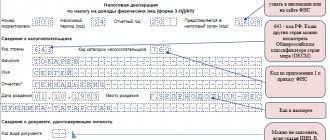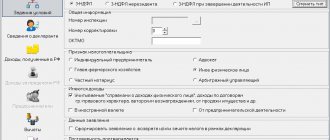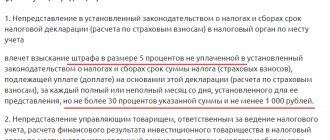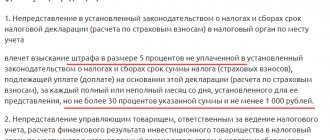Who is required to file a 3-NDFL declaration?
This should be done:
- individuals from among individual entrepreneurs (clause 1, clause 1, article 227 of the Tax Code of the Russian Federation);
- practicing notaries and lawyers who have established law offices, as well as other persons engaged in private practice (clause 2, clause 1, article 227 of the Tax Code of the Russian Federation);
- persons who received income from individuals or organizations (who are not tax agents) under a rental agreement, an employment contract and a civil law agreement, including a lease agreement for any property (clause 1, clause 1, article 228 of the Tax Code of the Russian Federation).
- persons who received income from the sale of property owned for less than the minimum period of ownership, as well as from the sale of property rights (assignment of the right of claim) (clause 2, clause 1, article 228 of the Tax Code of the Russian Federation);
- persons who are residents and received income from sources outside the Russian Federation (clause 3, clause 1, article 228 of the Tax Code of the Russian Federation);
- persons who received other income that was not withheld by the tax agent (clause 4. clause 1 of article 228 of the Tax Code of the Russian Federation);
- persons who have received winnings from the lottery or gambling in the amount of up to 15,000 rubles. (Clause 5, Clause 1, Article 228 of the Tax Code of the Russian Federation).
A complete list of persons required to submit a tax return is given in Articles 227 and 228 of the Tax Code of the Russian Federation.
How to submit a 3-NDFL declaration without a visit to the Federal Tax Service?
If you live far from the tax authority where you are required to report or where you are entitled to receive a deduction, the law provides for ways to apply without personal presence:
- Through a representative by proxy. But be sure to have your right to act on your behalf certified by a notary (clause 3 of Article 29 of the Tax Code of the Russian Federation). Without a notarized power of attorney, the tax inspector will not accept the declaration with attachments.
- By Russian Post. It is not necessary to send a registered letter; it is enough to fill out a list of attachments. Keep the second copy of the inventory with the stamp of the post office as confirmation of the date of dispatch, so that, if necessary, you can easily prove the filing of the declaration without violating the deadline. You can send a notification letter. When the tax authorities receive the envelope and sign the form, the Russian Post will return a signed notification of delivery of the package to the return address.
- Through the taxpayer’s personal account on the official website of the Federal Tax Service. Find the service on the main page of the site.
The method is convenient in that it allows you to do without obtaining a 2-NDFL certificate from your employer. You don’t have to run around to all the companies if you worked in several places during the reporting year. If your employers have already reported for the year as personal income tax agents, information about income will appear automatically in your personal account. In this case, the risk of making a mistake in the amount or income code is eliminated.
Deadlines for submitting the 3-NDFL declaration in 2020
The deadline for submitting the 3-NDFL declaration with the declared income is until April 30, the payment deadline is until July 15.
In 2022, by Decree of the Government of the Russian Federation dated April 2, 2020 No. 409, the submission deadline was extended by three months - until July 30, 2022. The payment deadline in 2022 remains the same.
Please note that this year the payment deadline was earlier than the deadline for submitting the declaration. On this issue, the tax authority recommended that if you do not have time to submit the declaration on time, calculate the approximate amount of tax and pay it to the budget before submitting the declaration.
For individual entrepreneurs who are part of small and medium-sized enterprises (SMEs), the payment deadline has been postponed until October 15, 2020.
If the declaration claims deductions without income, the period for submitting the declaration is limited to only three years; the declaration can be submitted at any time during the year.
The 3-NDFL declaration is submitted to the tax authority in one of the following ways (clauses 3-4 of Article 80 of the Tax Code of the Russian Federation):
- on paper - directly to the inspectorate, by mail with a list of attachments or through the MFC;
- in electronic form - via TKS or through the taxpayer’s personal account.
How to fill out the 3-NDFL tax return
You can fill out the 3-NDFL declaration on the website of the Federal Tax Service, in the taxpayer’s personal account, or on the government services website. In addition, there are specialized programs for filling out 3-NDFL.
Note! Externally and in its structure, the form for 2022 has changed quite significantly.
You will find comments on filling out in the materials in our section “ Declaration (NDFL) .
And if you plan to take advantage of tax deductions, then check out the articles below:
- «Filling out the 3-NDFL declaration for property deduction;
- «How to fill out tax deductions in the 3-NDFL declaration?;
- «Declaration 3-NDFL for treatment;
- «Tax return 3-NDFL for studies - sample;
- «The procedure for filling out the 3-NDFL declaration when purchasing an apartment.
For individual entrepreneurs, filing a declaration has its own characteristics. Find out what entrepreneurs need to pay attention to in our article “3-NDFL Declaration for Individual Entrepreneurs: Features of Filling Out.”
Reflection of corrections in the 3-NDFL declaration, taking into account Art. 81 of the Tax Code of the Russian Federation is accompanied by the submission of an updated calculation. For information on the rules for preparing clarifications for this report, read the material “Features of the clarified tax return 3-NDFL” .
For whatever reason, the 3-NDFL declaration is filed, the correct indication of the BCC plays an important role. Read about the BCC for personal income tax in the article “Budget classification codes for the 3-NDFL declaration .
In what cases is it not necessary to submit a 3-NDFL declaration?
Citizens who have sold a property (apartment, house, room, land) that has been owned for more than a minimum period are completely exempt from income tax and the obligation to file a tax return.
From January 1, 2022, the conditions for exemption from personal income tax when selling real estate have changed. The minimum period of ownership of property was reduced from 5 to 3 years if the property (room, apartment, residential building or share in the specified property) is the only residential premises owned by the taxpayer (including joint property of spouses). This does not take into account housing that was purchased within 90 calendar days before the date of state registration of the transfer of ownership of the sold residential premises from the taxpayer to the buyer (Federal Law dated July 26, 2019 No. 210-FZ).
Until 2016, the minimum period of ownership of real estate was 3 years, but Federal Law dated November 29, 2014 No. 382-FZ introduced Art. 217.1 of the Tax Code of the Russian Federation, which increased this period from 3 to 5 years for property that was acquired after January 1, 2016.
The three-year minimum time limit for ownership of a property has been retained only in cases where ownership of the property being sold has been obtained:
- by inheritance or under a gift agreement from an individual recognized as a family member or close relative;
- as a result of privatization;
- as a result of the transfer of property under a lifelong maintenance agreement with dependents.
From January 1, 2022, the sale of a single property (room, apartment, residential building) was added to these conditions. In all other cases, the minimum period of ownership of real estate will be 5 years.
After the sale of the property, next year the tax authorities will send you a notification about the need to submit a 3-NDFL declaration, regardless of the period of ownership of the apartment. The fact is that the tax authority sees only the date of alienation of the property without the detailed nuances of the transaction; it is obliged to warn you about the possible need to file a declaration.
If the period of ownership of the property exceeds the minimum period of ownership, there is no need to submit a declaration; in response to the notification to the tax authorities, it is necessary to send explanations and supporting documents (purchase agreement, gift agreement, certificate of registration of ownership, extract from the Unified State Register, certificate of payment share contribution, etc.).
This can be done through the taxpayer’s personal account on the tax website.
Which tax inspectorate should I submit my declaration to?
First, let's understand the concepts.
Registration at the place of residence is when a person lives where he is permanently registered (clauses 16 - 18 of the Rules for registration and deregistration of citizens of the Russian Federation, approved by Decree of the Government of the Russian Federation of July 17, 1995 No. 713), that is, registered. In this case, the passport contains a mark from the passport office or other authorized office.
Registration at the place of residence - when a person has temporarily registered at the address where he lives, and registration at the place of residence is retained for him at another address. In this case, no marks are placed in the passport. A person is issued a Certificate of Stay at the place of registration in Form No. 3 (Appendix No. 3 to the Administrative Regulations, approved by Order of the Ministry of Internal Affairs of Russia dated December 31, 2017 No. 984). It states the address and the period for which the person is registered at this address.
So which tax inspectorate should you submit 3-NDFL to: at your place of residence or at your place of registration? The answer to this question depends on whether or not an individual has an obligation to report income:
| Situation | Where to submit | Base |
| A person submits a declaration to receive a property or social tax deduction. However, he does not belong to the category of citizens who are obliged to provide 3-NDFL, but is registered both at the place of residence and at the place of stay | At the place of residence | Clause 2 Art. 229 of the Tax Code of the Russian Federation, letter of the Federal Tax Service dated 02.06.2006 No. GI-6-04/ [email protected] |
| An individual is required to submit a 3-NDFL declaration and is registered simultaneously at both the place of residence and the place of stay | ||
| An individual is required to submit a 3-NDFL declaration, and is registered only at the place of residence. The person does not have a permanent place of residence (registration) | By place of stay | Letters of the Federal Tax Service dated 06/02/2006 No. GI-6-04/ [email protected] and dated 01/30/2015 No. ED-3-15/ [email protected] |
In these letters, officials also emphasize that you cannot apply to the Federal Tax Service at your place of residence to receive tax deductions, even if a person is required to report income and at the same time claims a deduction.
If you have any unresolved questions, you can find answers to them in ConsultantPlus.
Full and free access to the system for 2 days.
How to determine the tenure of property
The period begins to apply from the moment the property is registered as ownership. But depending on the terms of the transaction, the beginning of the term is determined differently.
Let's look at the main examples.
Situation 1. Purchase of property under a sales contract
When purchasing an apartment, the tenure period begins from the date of state registration of ownership (Articles 131, 223 of the Civil Code of the Russian Federation).
Example
Krasnov entered into a purchase and sale agreement on December 25, 2016, and received the money within 5 days. I submitted documents for state registration on the day the contract was concluded. The registration period is set within 7 working days (depending on the method of submitting documents).
The certificate of state registration was registered on January 10, 2022 (including non-working days), received on January 11.
The ownership period begins on January 10, regardless of when the real estate purchase and sale agreement was concluded.
The tax-free sale of the apartment will be after January 10, 2022, if the apartment is the only one, otherwise - after January 10, 2022.
Situation 2. Purchase of property under an equity participation agreement
When purchasing an apartment under an agreement of shared participation, investment or assignment of the right of claim, the tenure period begins from the date of state registration of ownership of the apartment.
But a deduction for the purchase of an apartment can begin to be claimed from the moment the acceptance certificate for the apartment is signed (Letters of the Ministry of Finance of Russia dated November 15, 2012 No. 03-04-05/9-1315; 02.14.2013 No. 03-04-05/9-103) .
Example
Inokov entered into a share participation agreement for the construction of an apartment in 2014. The apartment was built in 2015 and transferred under a transfer and acceptance certificate.
Ownership of the apartment was registered only in 2016. In 2018, the apartment was sold; the tenure in this case was two years.
Situation 3. Purchase of property under an agreement with a housing construction cooperative (HBC)
When purchasing an apartment from a housing cooperative, the tenure period begins with payment of the share contribution, receipt of a certificate of full payment and signing of the acceptance certificate, and not from the date of receipt of the certificate of state registration of ownership.
Registration of rights is of a declarative nature. Even if the apartment is not registered, copyright holders can take advantage of a property tax deduction based on a certificate of full payment.
Example
In 2009, Yakovlev entered into an agreement with the housing cooperative for the construction of an apartment. In 2011, the apartment was built, the share payment was paid in full.
In 2022, Yakovlev decided to sell this apartment, which required registering ownership.
In 2022, Yakovlev will receive a notification from the tax authority about the submission of a 3-NDFL declaration, in response to which he will only need to submit a certificate of full payment of the share contribution.
Situation 4. Acquisition of property as a result of privatization
If the apartment was privatized after January 1, 1998, the period of ownership begins from the moment of registration of ownership. And if privatization took place before January 1, 1998, the tenure period is calculated from the date of conclusion of the agreement on the transfer of property into ownership.
Example
Markelov privatized the apartment in 1991. In 2022, he decided to sell the apartment and issued a certificate of state registration of ownership.
In 2022, you do not need to submit a declaration and show income. In response to a notification from the tax authorities, you must attach a copy of the privatization agreement.
Situation 5. Property is inherited
If the apartment is inherited, then the period of ownership begins from the date of death of the previous owner.
Example 1
Loginova inherited an apartment from her grandmother in 2015. In 2019, she registered ownership and sold the apartment the following year. There is no need to submit a declaration, since the period of ownership is more than 3 years.
There are two exceptions to this case. If one of the spouses inherits an apartment acquired during marriage after the death of the other, the period of ownership is calculated from the date of state registration of ownership of the apartment.
Example 2
In 2014, the couple bought an apartment and registered it as joint shared ownership. In 2022, the husband died, in 2020 the wife decided to sell the apartment. In this case, there is no need to submit a declaration. The tenure period exceeds 3 years. Since the apartment was purchased during marriage, it is the common joint property of the spouses.
If the owner of one share in an apartment inherits another share as a result of the death of the owner, the period of ownership begins from the date of initial registration of ownership of the share in the apartment.
When the first share belongs to the new owner for more than 3 or 5 years, there is no need to pay tax when selling the entire property, even if the second share was received much later.
Example 3
In 2010, mother and son bought an apartment in shared ownership for ½ each. In 2022, the mother died, and the son received the inheritance.
In 2022, the son decided to sell the apartment. In this case, the period of ownership of the property is determined by the initial registration of ownership of the share in 2010.
Situation 6. The apartment was received free of charge
When receiving an apartment as a gift, the tenure period begins from the date of state registration of ownership.
Example
In 2014, Alferova received an apartment as a gift from her brother. In 2018, ownership was registered, and the apartment was sold in 2019.
In 2022, it will be necessary to submit a declaration, since the period of ownership was less than the minimum. In the declaration, you can declare a property deduction in the amount of 1 million rubles, since there are no documented expenses.
Situation 7. Built house
If the house is built independently, the period of ownership is calculated from the date of registration of ownership of this object.
Example
From 2010 to 2016, Sorokin built a house on a plot of land. Construction was completed in January 2016, and ownership was issued in March.
The house is the only real estate item. If sold after January 2022, it will not be taxed.
Situation 8. Property rights are recognized through the court
If the right to property is recognized in court, then the period of ownership begins from the day the court decision enters into legal force.
Example
In 2014, Novikov appealed the inheritance agreement in court. According to the inheritance agreement, all property went only to his brother.
In 2016, the court ruled that half of the property under the contract should become the property of Novikov. Registration of property rights was completed in 2022, and implementation in 2020. The period of ownership of property begins in 2016, from the date the court decision entered into legal force.
Which tax office should I file the 3rd personal income tax return with?
To receive a tax deduction and declare income in cases established by law, an individual submits a declaration. Which tax office should I file the 3rd personal income tax return with? In the article we will answer this question, in addition, you will find out where to submit documents for a tax deduction, whether it is possible to submit a declaration not at the place of registration, but at the place of temporary registration, work or location of property.
Why is it so important to determine which tax office to file the 3rd personal income tax return with? If you choose the wrong inspection agency and submit a declaration, for example, by mail, then you will lose time (it may take a long time until it turns out that the 3rd personal income tax was sent to the wrong address). And time (in this case, the deadline for submitting documents) in relation to declaring income and receiving deductions plays an important role. Thus, for failure to submit a declaration to the relevant tax authority within the period established by the legislation on taxes and fees, a fine is imposed (for example, when declaring income from the sale of a car for less than the minimum period of ownership). As for the tax deduction, the answer to the question “where to file the 3rd personal income tax return” is also important for you, since the deadline for applying for a refund of the amount of tax overpaid in the corresponding year may expire. In addition, the refundable amount of tax can be significant, so you are always interested in a speedy return of funds in the form of previously paid personal income tax.
To which inspection is the 3rd personal income tax declaration submitted according to the law?
The tax return is submitted to the tax authority at the place of registration of the taxpayer (clause 3 of Article 80 of the Tax Code of the Russian Federation).
Taxpayers - individuals are subject to registration with the tax authorities at their place of residence , as well as at the location of the real estate and vehicles they own (clause 1 of Article 83 of the Tax Code of the Russian Federation).
What is considered a place of residence according to the Tax Code of the Russian Federation?
Place of residence of an individual - the address at which the individual is registered at the place of residence in the manner established by the legislation of the Russian Federation (Article 11 of the Tax Code of the Russian Federation).
The concept of “place of residence” should be distinguished from the concept of “place of residence,” which recognizes the place where an individual resides temporarily at the address at which the individual is registered at the place of residence in the manner established by the legislation of the Russian Federation.
Based on the above, “place of residence” and “place of permanent registration” (registration) are identical concepts. And the place of stay is the so-called place of temporary registration.
Thus, we have found out where to file the 3rd personal income tax return in the general case - the 3rd personal income tax declaration is submitted to the tax office at registration . If an individual does not have a place of residence on the territory of Russia, for the purposes of the Tax Code of the Russian Federation, the place of residence may be determined at the request of this individual at the place of his residence.
In this case, the tax return may be
- submitted by the taxpayer to the tax authority in person or through a representative,
- sent by mail with a description of the attachment,
- transmitted in electronic form via telecommunication channels or through the taxpayer’s personal account.
Recently, a personal income tax return on paper can be submitted to the tax authority through the multifunctional center for the provision of state and municipal services (MFC).
Where to submit documents for tax deductions
Currently, the law provides for the receipt of various types of tax deductions for personal income tax, in particular, deductions for expenses for the purchase of an apartment, room, land, construction and purchase of a house, repayment of mortgage interest, treatment, training, life insurance, etc.
If you want to find out which tax office to submit 3-NDFL for refund, you need to find out which tax office you belong to by registration. This is where you will send your 3rd personal income tax return and other necessary documents to receive a tax deduction.
Note that some of the deductions can be received through the employer (most often this is how 13% of the apartment is returned). In this case, there is no need to prepare and submit a tax return 3 personal income tax. Which tax office to apply for a tax deduction for the purchase of an apartment (if you receive it through the Federal Tax Service or at work) will depend on which Federal Tax Service Inspectorate you belong to at your place of permanent registration.
Where to file the 3rd personal income tax return? This question is important for those who declare their income and receive a tax deduction
We will answer other frequently asked questions on the topic under consideration.
Where to file personal income tax return 3 to receive a tax deduction if you live in another city?
Registration of a tax deduction is a benefit, therefore the law does not impose the obligation to return 13% and, accordingly, submit a declaration. Persons who are not required to submit a tax return have the right to submit such a declaration to the tax authority at their place of residence (clause 2 of Article 229 of the Tax Code of the Russian Federation).
Therefore, a taxpayer working in one city, but at the same time having permanent registration in another city, submits a tax return 3 personal income tax to the registration inspectorate to receive a tax deduction (Letter of the Ministry of Finance of the Russian Federation dated April 20, 2022 N 03-04-05/23779) .
Example
The man works in Moscow, but is registered in Omsk. In 2022, he had dental treatment for a fee. To receive a tax deduction, he submits a declaration for 2022 to the Federal Tax Service at his place of registration in Omsk and issues a tax refund. At the same time, he does not have to go to Omsk to submit a declaration - he can submit 3 personal income taxes and the remaining documents for deduction via the Internet or by mail.
Is it possible to submit documents for a tax deduction at a location other than your place of registration?
If you are temporarily registered at one address and registered at another, then in order to receive a tax deduction you need to submit a 3rd personal income tax declaration to the tax office at your place of registration (Letter of the Federal Tax Service of the Russian Federation dated 02.06.2006 N GI-6-04 / [email protected] , Letter from the Federal Tax Service dated January 30, 2015 N ED-3-15/ [email protected] ).
Is it possible to file a 3rd personal income tax declaration when purchasing an apartment at the location of the property?
No, in this case, documents for obtaining a property deduction and personal income tax declaration 3 are submitted at the place of residence (i.e., the taxpayer’s place of registration).
Which tax return should I file when selling an apartment or car?
The obligation to file a declaration 3 of personal income tax when selling property does not always arise. For example, if you sold a car that you owned for more than 3 years, then you do not need to fill out a declaration. Taxpayers who are required to submit a declaration submit it to the tax authority at their place of registration (clause 3 of Article 228 of the Tax Code of the Russian Federation).
To which tax inspectorate is the 3-NDFL declaration submitted when selling property if there is no registration?
Citizens registered at the place of residence, but who do not have a residence permit on the territory of the Russian Federation, who have the obligation to submit a tax return for personal income tax, submit such a declaration to the tax authority at the place of residence (Letter of the Federal Tax Service of the Russian Federation dated 02.06.2006 N GI-6-04/ [ email protected] ). And if, at the time of filing a tax return, there is no place of residence (place of stay) in the territory of the Russian Federation, the tax return is submitted to the tax authority with which the person is or was registered, respectively, at the location of the real estate or vehicles owned by him (Letter of the Federal Tax Service Russia dated December 3, 2018 No. BS-3-11/ [email protected] , Letter of the Federal Tax Service of the Russian Federation dated August 28, 2018 No. BS-4-11/ [email protected] ).
Where to file the 3rd personal income tax return - at your place of residence or registration?
This question is not entirely correct, because... According to tax legislation, the place of residence is the place of registration. In general, the 3rd personal income tax declaration is submitted at the place of registration (and not at the place of stay)
Now you know which tax office to submit your 3rd personal income tax return to and where to submit documents for a tax deduction. To answer these questions, we turned to legislative norms, as well as clarifications from government bodies. In general, the declaration is submitted to the inspectorate at the place of registration (i.e., place of residence).
Posted by:
Ralenko Anton Andreevich
Moscow 2020
How to reduce the payment in the declaration
When selling property before the expiration of the minimum period of ownership, the seller must fill out and submit a 3-NDFL declaration, and you can reduce the amount of tax by applying one of the deductions:
- the amount of actual expenses incurred related to the acquisition of this property, which must be documented: costs of acquisition, construction of real estate, mortgage interest (clause 2, clause 2, article 220 of the Tax Code of the Russian Federation);
- property deduction in the amount of 1 million rubles. when selling residential houses, apartments, rooms, garden houses, land plots (shares in listed real estate) or in the amount of 250,000 rubles. – when selling other real estate (for example, a car, a garage). This deduction is applied if expenses cannot be documented, for example, in a gift agreement (clause 1, clause 2, article 220 of the Tax Code of the Russian Federation).
Thus, the sale of real estate worth up to 1 million rubles, as well as other property worth up to 250,000 rubles. is non-taxable.
An example of applying a deduction of 1 million rubles.
Modestov inherited an apartment in 2022 with a cadastral value of 3 million rubles. and decided to sell it that same year. The sale takes place before the minimum ownership period and there are no documented acquisition costs.
In this case, you can take advantage of a property deduction in the amount of 1 million rubles. The amount to be paid will be: RUB 260,000. = (3 million rubles – 1 million rubles)*13%
Example of using a deduction with confirmed expenses
Korablev bought an apartment in 2022 for 4.5 million rubles. and sold in 2020 for 4.2 million rubles, the cadastral value is 4.3 million rubles. Since the amount of expenses actually incurred is greater than the sum of the sale and the cadastral value, no tax will be payable in the declaration.
When selling property, an important indicator is its cadastral value. So, if the value of the property under the contract is less than 0.7 of the cadastral value, then the tax will have to be calculated based on the cadastral value.
Example calculation with cadastral value
Smirnov bought an apartment in 2022 for 3 million rubles. I sold the apartment in 2022 for 3 million rubles, the cadastral value of the apartment is 6 million rubles.
Although the amount of expenses actually incurred and the amount of income are the same and amount to 3 million rubles, tax will have to be paid, since the cadastral value is twice the actual value.
The amount to be paid will be: RUB 156,000. = (6 million rubles * 0.7 reduction factor - 3 million rubles (costs)) * 13%
When do you need to fill out the 3rd personal income tax declaration yourself?
It was already said above that if a broker is a tax agent, then he will deal with personal income tax himself. But there are nuances here too. First, let's look at the general scheme of organizing trade . There are 2 options :
- Connection between investor - foreign broker - entry to the stock exchange . In this case, we resolve the issues with the Federal Tax Service ourselves . Examples of such companies include Interactive Brokers, Just2Trade, United Traders. They are reliable, but do not have a license from the Russian Federation, and therefore do not calculate taxes for payment to the Federal Tax Service.
- Using a gasket in the form of a company operating in the Russian Federation. The chain looks like this - investor — Russian broker — foreign — stock exchange. No need to bother with 3 personal income taxes, this is done by the tax agent.
Example
It happens that when working with a Russian broker, you will have to calculate and pay personal income tax on part of your income yourself. Let me give you an example:
- You work with BCS and buy exclusively securities of Russian companies. In this case, joint stock companies themselves transfer the required amount to the state; this happens at the stage of paying dividends.
- From the same BCS you buy securities of Russian companies, but issued abroad (Qiwi, Polymetal, Yandex, Rusal), and receive dividends on them. The broker does not pay personal income tax for this part of your income; we calculate it ourselves.
If you are planning to declare your income, but have doubts that the tax agent does not withhold taxes from all types of income, I recommend that you clarify this point with technical support . It is unlikely that they will provide special advice and help with calculations, but at least they can point out the necessary articles of the Tax Code of the Russian Federation and inform you whether the tax is calculated on all items of income or not. Usually clients are met halfway .
With many countries of the Russian Federation, back in the 90s of the twentieth century, it concluded an agreement on the avoidance of double taxation. So, in theory, you won’t have to overpay. Part of the tax paid in the country where the income was received goes towards the 13% personal income tax in Russia. For example, in the USA they pay 10% of dividends, leaving 3%, which the investor declares independently in Russia.
Main deductions claimed on the declaration
Residents of the Russian Federation who receive taxable income at a rate of 13% can claim tax deductions. That is, working citizens. The maximum amount that can be returned for a year is the amount of tax paid for the same year according to the 2-NDFL certificate. The deadline for submitting a declaration with the claimed deductions is not established and is limited to only three years.
Taxpayers have the opportunity not to wait until the end of the tax period, but to provide notice to their employer so that personal income tax is not withheld from their salary this year. To do this, you need to contact the tax office with the entire package of supporting documents, depending on the deduction.
After checking the documents in a month, the tax authority will prepare you a notice that must be submitted to the employer.
Types of tax deductions
Standard tax deductions
Available to certain categories of citizens and parents. In most cases, standard tax deductions are provided by the employer, who does not withhold personal income tax from wages. The deduction can be provided “for yourself” and for children.
Standard tax deduction for yourself
The following preferential categories of taxpayers may receive:
- disabled people;
- combatants, WWII veterans, military personnel;
- Chernobyl victims and other persons affected by radiation accidents or as a result of testing nuclear installations, nuclear weapons and space technology, as well as during exercises and other work at such facilities;
- other categories of persons listed in paragraphs. 1, 2 p. 1 art. 218 Tax Code of the Russian Federation.
Standard Child Tax Credit
Provided to parents, the spouse of a parent, adoptive parents, guardians, trustees, foster parents, the spouse of an adoptive parent who are providing for the child. That is, each parent receives such a deduction until the child reaches the age of 18 or until the age of 24 if the child is in full-time education. The single parent receives a double deduction.
To receive the deductions listed above, you must write an application at work and provide supporting documents (birth certificate, agreement with an educational institution, etc.).
To check whether you receive a deduction for children from your employer, you can take a 2-NDFL certificate for last year and look at the deduction codes in the certificate with numbers 126 (for one child), 127 (for the second child), 128 (for the third child) and etc. If they are, then you will be given a deduction. If you have the right to a deduction and did not receive it from your employer, then you can indicate them in the 3-NDFL declaration and return this amount to the tax office.
Social tax deductions
Provided if you have incurred the following costs:
- for the purchase of any medications for which there is a prescription from a doctor (since 2019, you can receive a deduction for the purchase of any medications, and not just from a special list, as before; to return, you will need a prescription from a doctor on an approved form and receipts from the pharmacy);
- for charitable purposes and donations (as a general rule, no more than 25% of your taxable income for the year);
- for your own education, as well as the education of your children, wards, brothers and sisters;
- for your own treatment, as well as the treatment of your spouse, parents, children and wards; Refunds for treatment of children are carried out until they reach 18 years of age;
- for non-state pension provision and voluntary pension insurance in one’s own favor or in favor of family members and close relatives, as well as for voluntary life insurance under contracts concluded for a period of at least five years in one’s own favor or in favor of a spouse, parents or children;
- to pay additional insurance contributions for a funded pension;
- to undergo an independent assessment of their qualifications.
The total amount of all social deductions declared according to the declaration cannot exceed 120,000 rubles. in year.
The deduction for expenses for educating children is limited to 50,000 rubles. per child for both parents. There are no restrictions on expensive types of treatment (code 2 is indicated on the certificate of payment for medical services). For conventional treatment, the limit is set at 120,000 rubles. (in the help the code is 1).
Investment tax deductions
The taxpayer who has carried out certain transactions has the right to investment tax deductions:
- With securities traded on the organized securities market, as a result of which income was received.
A deduction for the sale of securities is valid upon their sale if the documents were owned for at least 3 years in an amount of no more than 3 million rubles multiplied by the number of years of ownership. Provided that the securities were not placed in an individual investment account.
- He deposited personal funds into his individual investment account.
- Received income from transactions recorded on an individual investment account.
Property tax deductions
The taxpayer who has carried out certain transactions with property has the right to property tax deductions:
- sale of property (a deduction is applied in the amount of 1 million rubles);
- purchase of housing (house, apartment, room, etc.);
- construction of housing or acquisition of land for these purposes;
- redemption of property from a taxpayer for state or municipal needs;
- repayment of interest on targeted loans (credits) spent on the purchase of the specified real estate or received for the purpose of refinancing such loans.
Claim a tax deduction for the purchase of an apartment, house, room, etc. possible from next year after registration of ownership of the apartment. Pensioners can claim deductions for the three previous years that preceded the purchase of an apartment.
Housing must be purchased at your own expense, which can be documented. The maximum deduction for housing that can be received is 2 million rubles. That is, they will return 13% of this amount - 260,000 rubles.
The amount of the deduction for the year depends on the amount of personal income tax paid for the same year. Refunds can be made throughout your life until the entire amount is exhausted.
It will also be possible to receive a deduction when purchasing an apartment (house, etc.) for children (wards), regardless of age, if they are declared incompetent by the court.
Until 2014, it was possible to use the right to receive a property deduction for only one residential property. Since 2014, the right is limited only to the return amount of 260,000 rubles. That is, when purchasing a home after 2014 (provided that you have not previously exercised the right to deduct for housing), a refund can be made for several properties until the refund amount reaches the limit.
After the taxpayer uses the property deduction in full, that is, the entire maximum amount, re-providing this tax deduction is not allowed (clause 11 of Article 220 of the Tax Code of the Russian Federation).
When purchasing a plot of land for housing construction, you will be able to claim a deduction only after you have built a house and registered ownership (Clause 2, Clause 3, Article 220 of the Tax Code of the Russian Federation; Part 1, Article 28 of Federal Law No. 218- dated July 13, 2015 Federal Law).
A deduction for repayment of interest on a loan spent on the purchase or construction of housing and land, or received for the purpose of refinancing a loan, is provided in the amount of interest expenses actually incurred, but cannot exceed 3 million rubles. and is limited to one dwelling. This restriction applies to loans received since 2014.
For loans received before 2014, the property deduction is provided without restrictions (clause 4 of article 220 of the Tax Code of the Russian Federation; clauses 1, 4 of article 2 of the Federal Law of July 23, 2013 No. 212-FZ).
Starting from 2022, it will be possible to receive a deduction when purchasing an apartment for mortgage interest when refinancing a loan, even if the refinancing was not done by a bank, but by another organization.
Professional tax deductions
As a general rule, professional tax deductions are provided in the amount of expenses actually incurred and documented. However, in exceptional cases, instead of taking into account actual expenses incurred, individual entrepreneurs can receive a deduction in the amount of 20% of the total amount of income they received.
List of income for which deductions can be obtained:
- income received by individual entrepreneurs;
- income received by notaries engaged in private practice, lawyers who have established law offices, and other persons engaged in private practice;
- income received from performing work (rendering services) under civil contracts;
- royalties or rewards for the creation, performance or other use of works of science, literature and art, rewards to the authors of discoveries, inventions and industrial designs received by taxpayers.
Tax deductions when carrying forward losses from transactions with securities and transactions with financial instruments of futures transactions traded on the organized market
Quite often, for persons carrying out transactions with securities and financial instruments of futures transactions (FISS), at the end of the year, the amount of expenses exceeds the amount of income from such activities.
The resulting negative financial result can be taken into account by the taxpayer either when calculating tax in the current period (if a profit is made from other transactions), or (if there is no taxable income from other transactions in the current year) the resulting loss can be carried forward to subsequent years (Article 220.1 Tax Code of the Russian Federation).
It is necessary to remember the following restrictions:
- It is not allowed to carry over to future periods losses incurred on transactions with securities not traded on the organized securities market, and on transactions with financial instruments of futures transactions not traded on the organized market;
- the loss is taken into account when calculating tax on the relevant types of transactions;
- a loss received from transactions with securities traded on the organized securities market can reduce the tax base only for transactions with securities traded on the organized securities market;
- a loss received on transactions with financial instruments of futures transactions traded on the organized securities market can reduce the tax base only for transactions with financial instruments of futures transactions traded on the organized securities market.
After the declaration is received by the inspectorate, the tax authority will begin a desk audit - it is carried out within 3 months. If during this time the taxpayer submits an updated tax return, the countdown of the deadline will begin again.
After checking the declaration, the tax authority will make a decision on a refund, partial refund or refusal to provide a deduction.
A refund application with account details can be submitted simultaneously with a package of supporting documents or after a desk tax audit.
The refund is made within one month from the date the tax authority receives such an application. From 2022, the return application will be part of the 3-NDFL declaration.
Who is required to file a personal income tax return?
We are often asked this question in the spring. who use the traditional taxation system, heads of peasant (farm) households, notaries, lawyers and all those engaged in private practice are
required to declare their income In addition to them, citizens who received income for which tax was not withheld must submit a personal income tax return. For example, citizens who have received:
- income from the sale of a car, apartment or other property (real estate, shares, securities, shares in the authorized capital of an organization, other property),
- income from other citizens under rental or rental agreements (housekeepers, tutors, etc.),
- income from which tax was not withheld the organization that paid the income ,
- winnings paid by the organizers of lotteries, sweepstakes and other risk-based games (including those using slot machines).
Attention!
For those who are required to report on income received , it is necessary to submit a declaration, even if the tax amount is zero!
Many citizens , having sold a car, apartment or other property, sincerely believe that since the amount of tax that must be paid to the budget is zero (the income received is less than the legal limit for property deductions), it is not necessary to report to the tax office . It's not like that at all ! The very fact that the tax amount is zero does not exempt you from liability for failure to submit a tax return. Moreover, when identifying income, the tax office will calculate the amount of tax without taking into account any deductions (they are provided exclusively on the basis of the declaration) and will send a request for payment of tax in the full amount of income received!
And even if a citizen submits a declaration in the future or decides to sue the tax authorities, it should be kept in mind that judicial practice is unpredictable and may follow an unfavorable scenario. If a citizen refuses to declare income within the required period, then he is an unscrupulous taxpayer , and therefore does not have the right to deductions and must pay tax on the full amount of the transaction. Thus , if you sold property to an organization or an individual entrepreneur with the necessary documents and indicating your passport details, and also if you sold “registered” property (the rights to which are somehow fixed or subject to registration), the declaration must be submitted regardless of amount of income. This also applies to property exchange transactions.
If insignificant income from the sale is received from individuals without completing any documents, then its declaration is entirely on your conscience .
How to reduce the fine
In case of untimely submission of the 3-NDFL declaration, taxpayers face a fine under paragraph 1 of Art. 119 of the Tax Code of the Russian Federation. The amount of the fine on a declaration with income without payment is 1,000 rubles. or 5% of the unpaid amount for each day of delay, but not more than 30% of this amount and not less than 1,000 rubles.
Until 2022, a taxpayer could not be fined if the return was not submitted to the tax office. From 2022, if a 3-NDFL declaration is not submitted, the tax office will simply conduct a desk audit without it and will add an additional fine based on the cadastral value of the housing. When selling, the income will be the transaction price or 0.7 of the cadastral value (whichever is greater in amount). When donating, the cadastral value of the property will be considered income.
The amount of the fine can be reduced by at least two times (or more) if there is at least one mitigating circumstance. The list of mitigating circumstances is not exhaustive: the more there are, the less the fine may be.
The minimum fine of 1,000 rubles can also be reduced. The list of mitigating circumstances is given in Art. 112 of the Tax Code of the Russian Federation:
- committing an offense due to a combination of difficult personal or family circumstances;
- committing an offense under the influence of threat or coercion or due to financial, official or other dependence;
- difficult financial situation of an individual held accountable for committing a tax offense;
- other circumstances that may be recognized by the court or tax authority considering the case as mitigating liability.
The last point may include the following:
- committing such an offense for the first time;
- the presence of minor children or children under 24 years of age who are in full-time education;
- advanced (retirement) age;
- minor period of non-submission of a declaration or non-payment of tax (from 1 to 10 days);
- repentance and admission of guilt;
- lack of intent to commit a violation.
The more mitigating circumstances are indicated in the petition, the greater the chance of reducing the amount of the fine by more than half.
How long does it take to process a 3-NDFL declaration?
All personal income tax payers have the right to return tax on income paid for the previous 3 years if they:
- purchased housing;
- spent money on expensive treatment;
- paid for children's education;
- incurred other expenses listed in Art. 218 - 220 of the Tax Code of the Russian Federation.
Such a return is a tax deduction (property, social, standard). To receive the paid tax back, you will need to declare your income and expenses by submitting Form 3-NDFL to the Federal Tax Service at your place of registration. The procedure and deadline for returning money according to the 3-NDFL declaration are enshrined in Art. 78 Tax Code of the Russian Federation.
Recommendations from ConsultantPlus (free access)
Typical situation: How to return excessively withheld personal income tax to an employee
First, tax officials conduct a desk audit of the declaration for 3 months, and then they have another 1 month to transfer the amount of overpaid tax to the taxpayer’s account specified in the application. Maximum 4 months, minimum 30 days (but this rarely happens).
IMPORTANT!
Please note that this is a cash refund. If the taxpayer wants to reduce the tax payable, the decision-making period is shorter - up to 3 months.
The period begins from the moment the declaration is submitted to the Federal Tax Service or by post (according to the stamp on the document or postal receipt). For example, if it was submitted on May 10, then the desk check will be completed no later than July 10. The decision on the deduction (or refusal of it) is made no later than 10 days after this date.









